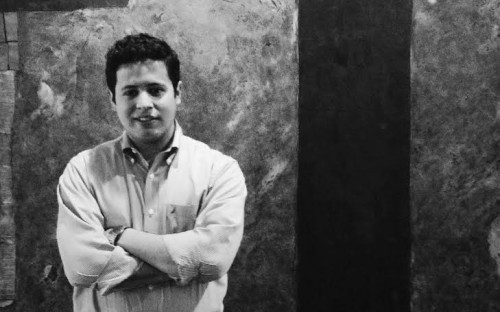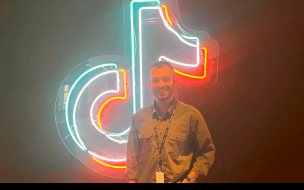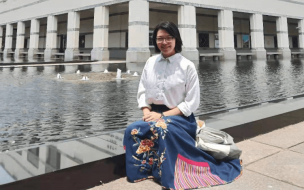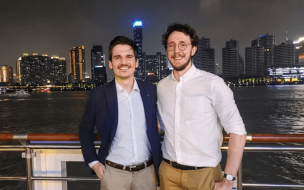The MBA applicant is applying to programs at MIT Sloan and Babson College in the US, and McGill University’s Desautels Faculty of Management in Canada — business schools he considers to have a strong emphasis on sustainability and social impact.
Based in Washington DC, the conscientious Colombian works as partnerships officer at the Inter-American Development Bank (IDB). He secures private sector involvement in development projects in Latin America and the Caribbean.
After four years in the public sector, Santiago — who previously interned at the Organization of American States, which promotes western hemisphere cooperation — wants to step up in his career.
What do you hope to gain from an MBA?
An MBA will allow me to develop an extensive network for my future endeavours, and strengthen my business skills in a diverse environment in terms of leadership, management and team-building.
Most importantly, an MBA will allow me to better understand how businesses work, which is vital when finding new ways to leverage the private sector in [international] development.
What are the most important factors to you when choosing a business school?
A strong focus on sustainability and social innovation. Many schools offer lectures in corporate social responsibility and sustainability, but that’s all. I wanted more. I was looking for schools that mainstreamed social innovation in their philosophy, programs and lectures.
In my opinion, there’s a need to change business practices and, for me, McGill, Babson and MIT are the schools that aim to prepare students to thrive in this new way of doing business.
What are your future career plans?
I want to succeed within the impact investing market and become a leader in the social innovation space in Latin America.
I look forward to contributing proactively to changing business norms, [moving] beyond shareholders’ profit-maximizing model and towards the triple-bottom line, focusing on generating economic, social and environmental returns for [all] stakeholders.
Why is making a social impact important to you?
We are at a moment in time where we need to review our approach towards communities and environments and adjust in order to thrive economically.
It was [once] a common belief that financial returns were somehow [the] opposite to social and environmental returns.
Yet businesses need to become aware of how — due to a cultural shift driven by technological change and social media — delivering social and environmental returns can positively impact financial returns.
What has been the biggest challenge in the application process so far?
The GMAT. It is a long endeavour that takes a lot of time and requires resilience, commitment and a clear understanding of what the expected outcome is.
How did you prepare for the GMAT?
I used Magoosh. Magoosh is perfect for people who like to manage their own time and are familiar with online courses.
How do you plan to fund your MBA?
I plan to use my savings as well as resources to be provided by my relatives. What remains, I will cover either through a scholarship or a student loan.
What advice do you have for others considering applying for an MBA?
It’s tough and it requires having a positive mind-set. At each stage you will learn more about yourself and your expectations. Take your time and never forget why you want to study for an MBA.
RECAPTHA :
2b
aa
08
c1








